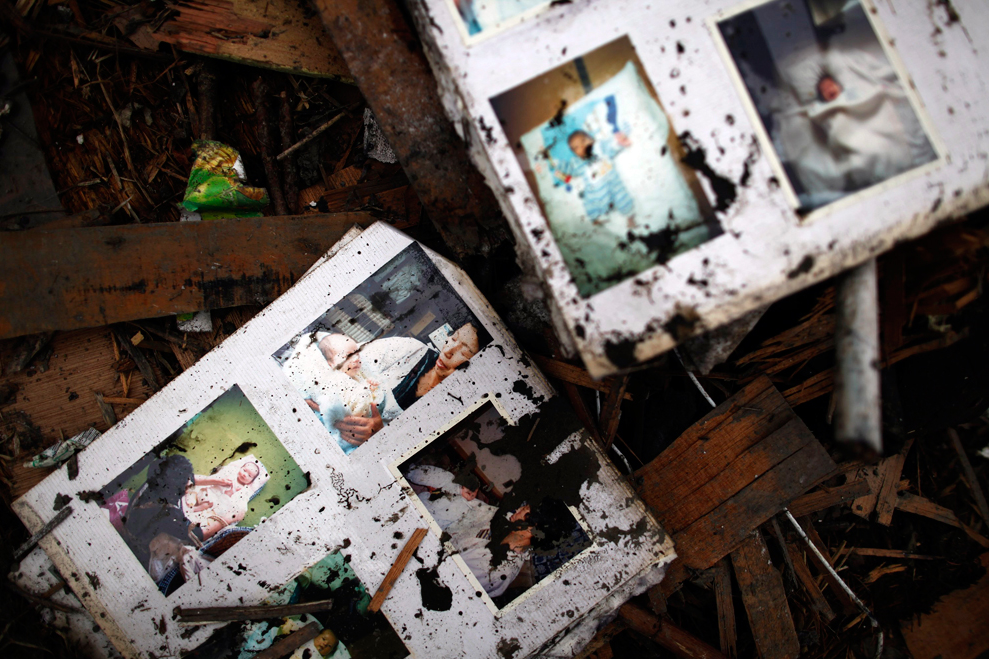The photographs of the devastation wreaked by the recent earthquake and tsunami in Japan are, well, simply devastating—aerial views of towns and cities literally flattened beyond recognition, acres upon acres of rubble and debris, and, of course, amidst all the scattered wreckage, dead bodies. But for the fact that they are in color, many of these photographs could be perfect doubles for photographs of Hiroshima and Nagasaki in the immediate aftermath of suffering nuclear attack. It is a haunting reminder of the persistent threat of calamity to human frailty whether wrought by man or nature.
Many of the images of rubble and wreckage show oddities such as boats teetering perilously atop buildings or hundreds of cars and trucks piled upon one another in a city street as if rather in a junkyard. But equally prominent, and far more poignant, are photographs such as the one above of family photo albums that managed to survive the catastrophe only to come to rest among the detritus.
The family photo album is a modern affectation, of course, but within liberal, late modern cultures its presence is ubiquitous to the point of being almost universal. And its value in this context is pronounced as a central marker of time and identity, of where “we” have been and who “we” are, as well as a family relic to be passed down from one generation to the next. Just as the photograph is an index of the thing photographed, indicating that “this” once was here, so too is the family photo album an index of the family it records. It is not clear if these particular photo albums will ever find their rightful owners, if the mud and dirt will ever be cleared away, or if the images contained within them will live on in specific family memories—or if they will live on at all. What is clear, and perhaps what is most important, is our willingness to recognize them among the rubble as important symbols of a common humanity that invites us to activate a powerful stranger relationality.
There but for the grace of god …
Photo Credit: Damir Sagolj/Reuters

Discussion